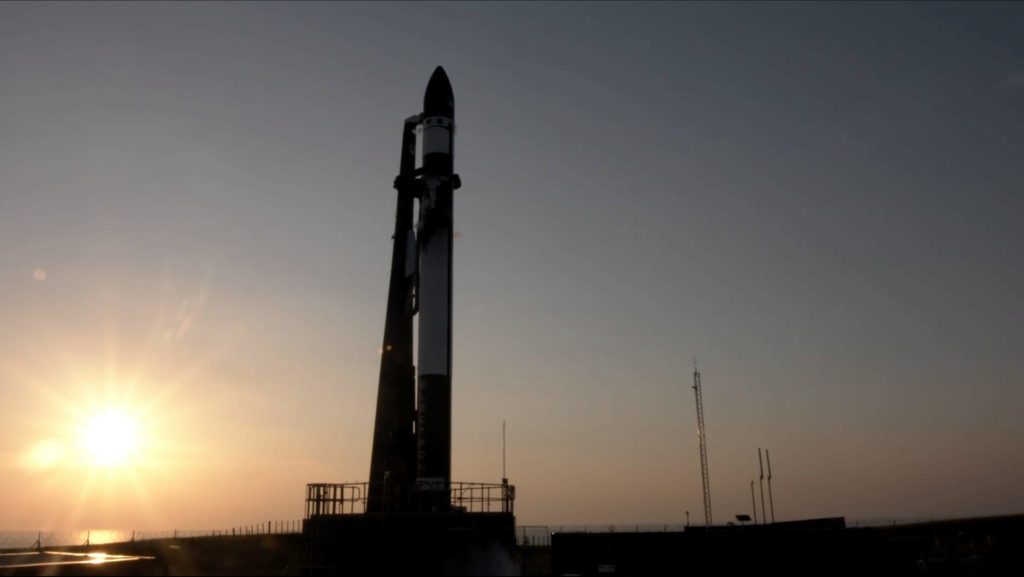WOW! Two Hungarian satellites in space – beautiful photos, video
They function perfectly well and were delivered in space by a rocket named Electron that was made by Rocket Lab, a US company. The SMOG-P and the ATL-1 are both small satellites, the former produced by Budapest University of Technology while the latter by a private corporation.
According to index.hu, the launch of Rocket Lab’s Electron was postponed one week ago because of technical reasons but at 9:22, today (Central European Time) the rocket was finally started from the Māhia peninsula in New-Zealand. Its goal was to deliver nine satellites into space: the Hungarian SMOG-P and ATL-1, a small Japanese satellite and a platform containing six satellites of the Alba Orbital, a Scottish satellite developing company.

This was the 10th mission of the Rocket Lab team thanks to which this is the second time ever that Hungarian satellites operate in space. The first time was in 2012 when a small satellite (MASAT-1), constructed in the Budapest University of Technology (BME),
was used in Earth orbit for 1062 days and worked perfectly
until its death.
The best Hungarian universities, part 1 – Budapest University of Technology and Economics
SMOG-P designed and built by the teachers and the students of BME is a small unit (1PQ, one PocketQube), 5×5×5 centimetres, a picosatellite. The project is a pioneer one since there has never been a successful picosat mission. The university’s team took part in the development of ATL-1, as well, but the business sector financed that project. The latter satellite is in the nano category (2 PQ) with 5×5×10 centimetres.
What a way to close out another year of Electron launches. A perfect mission + successful guided re-entry of stage 1 as we work towards reusable rockets. Congrats to @SpaceflightInc, @ALE_StarAle & @AlbaOrbital – we hope your satellites are enjoying their new home on orbit.🚀 pic.twitter.com/bnjCXrQZlS
— Rocket Lab (@RocketLab) December 6, 2019
Not long after noon did scientists in Japan message their Hungarian colleagues that they receive the radio transmission of both Hungarian satellites so it can be stated that
the mission was successful.
The satellites use solar energy, and they circulate on a 380 km high orbit. In truth, that will only come to light later whether all systems are fully operable on the board of the two satellites.
- Hungary plans to send an astronaut to space in 2024 – UPDATE
- The Hungarian who developed special food for John Glenn, the legendary American astronaut
- First Hungarian astronaut Farkas marked his second birthday with a public lecture
According to the original plans, SMOG-P will be on a 600-800 kilometres high orbit, and its main quest is to monitor the electromagnetic pollution caused by the DVB-T (Digital Video Broadcasting – Terrestrial). Even though it was completed before ATL-1, they could not find a rocket company that can deliver this picosat into space. This is why that project was delayed for years. Finally, Rocket Lab popped up; they developed a mechanism for picosatellites and scientists from BME thought that it could be tested with SMOG-P.
Electron in the skies over LC-1. Beautiful shots captured by Hamish Pike. pic.twitter.com/bfl7sCh6jV
— Rocket Lab (@RocketLab) December 6, 2019
Interestingly, SMOG-P has a twin on Earth (SMOG-1) which – if the tests are successful – will be delivered into space in 2020 on board of a Russian rocket. The two satellite’s task will be to prove that picosats are viable solutions. Furthermore, they have to provide a map of the electromagnetic pollution of the space surrounding our planet. Finally, they have to monitor the effect of the solar wind on satellites.
There she goes! Congrats @ALE_StarAle and @RocketLab. Let's do it again soon. #RL2 pic.twitter.com/EVylJQmPUn
— Spaceflight (@SpaceflightInc) December 6, 2019
The Ipari és Kereskedelmi Ltd. paid ATL-1, and its goal is to test a new thermal insulation material in space, but it monitors DVB-T, as well. Both of the Hungarian satellites are
controlled from the Budapest University of Technology.

